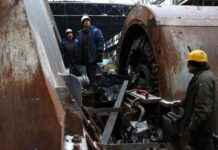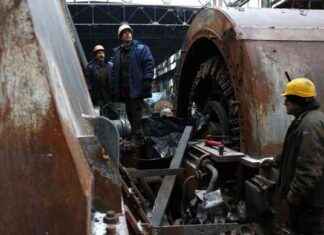Reply to Lars-Göran milky way letters to the editor on the DN Review (24 april):
Let us begin by putting today’s brandnivåer in a historical perspective. Before man began to fight the forest fires burned forest in our latitudes often. Approximately 5 percent of Sweden’s forest land burned annually, compared with last year’s 0.1 per cent.
Lars-Göran and His assertion that the clear-cuts and subsequent scarification creates forest fires is incorrect. Skogforsk has, with the support of statistics from the Swedish civil contingencies Agency investigated the causes of fires in the forest and the land.
it seldom is the road traffic accidents that cause fires, and even more rare that these fires requires effort from the emergency services. This is because the fires are usually small, thanks to early detection and good fire-fighting of maskinförarna in the earliest stage of the fire.
the forest Industry has, together with Skogforsk has developed guidelines for how forest fires should be prevented. That the effect is last year’s dry summer, a record. Despite the extreme risk of fire was fires caused by forestry less than 1% of the fires that required action by the emergency services.
the Combination of private forest ownership, economic value in forestry and a well-developed skogsbilvägnät explains a large part of the low brandfrekvensen in the Swedish forests compared with, for example, Canada and Russia. Forest roads that forestry is based make a big advantage in fires, since they can be used by the emergency services in fighting the fire.
an inhibitory effect on the fires. Today’s forest management leads to that the amount of deciduous trees increases in the country’s forests, including zones of trees be left along waterways and wetlands. Statistics on trädslagsblandning found in the official statistics produced by the Swedish University of agricultural sciences.
Lars-Göran Lundmark is right in that the temperature of a harvested area is higher than in the standing forest, which in itself increases the fire risk. However, he need not worry for ploughing, it was banned by law in 1994. Scarification is carried out before planting.
By the competing vegetation to be removed given the new trees a good start. There is no question of any land drainage is. On the contrary, increases the markvattennivån after harvesting, sometimes so greatly that it impedes the establishment of new forest.
in Lars-Göran milky way reasoning about forest removals and emissions of carbon dioxide. Most of them lack grounding in reality. For those who wish to put themselves into the state of knowledge in the field, refer to the popularly held the report ”The Swedish forestry industry’s carbon footprint”.
A conclusion is that the production of timber shall be as high as possible in order to provide a significant and sustainable benefit to the climate. To leave the forest untouched would for a time increase the deposition of carbon. But when today’s younger forests, matures, declines and ends nettoinbindningen of coal. The decomposition of dead trädbiomassa provides a natural forest as large emissions as the carbon dioxide absorbed into the tree’s annual growth.
One year’s growth in Sweden’s forests absorb more than three years of the country’s carbon emissions. The increased amount of wood in the forests is equivalent to 40 years of emissions from Sweden at the current level.
and climate change very seriously and are therefore investing in research and development in order to make forestry even more gentle and provide vital forests with good growth and thus provide maximum benefit to the climate.
in Today’s forestry can not be accused of increasing the risk of forest fires, adverse climate impacts and decreased lövinslag. Objectively measurable facts refute this.
It is difficult to understand that the submissions based on subjective opinion, as Lars-Göran milky way, are allowed to affect the perception of forestry and its development. I feel that the facts that rests on a scientific basis often get to call the weight, both in public debate and decision making.
do we really Want to forestry and the society in general shall be governed by the opinions without the facts?








